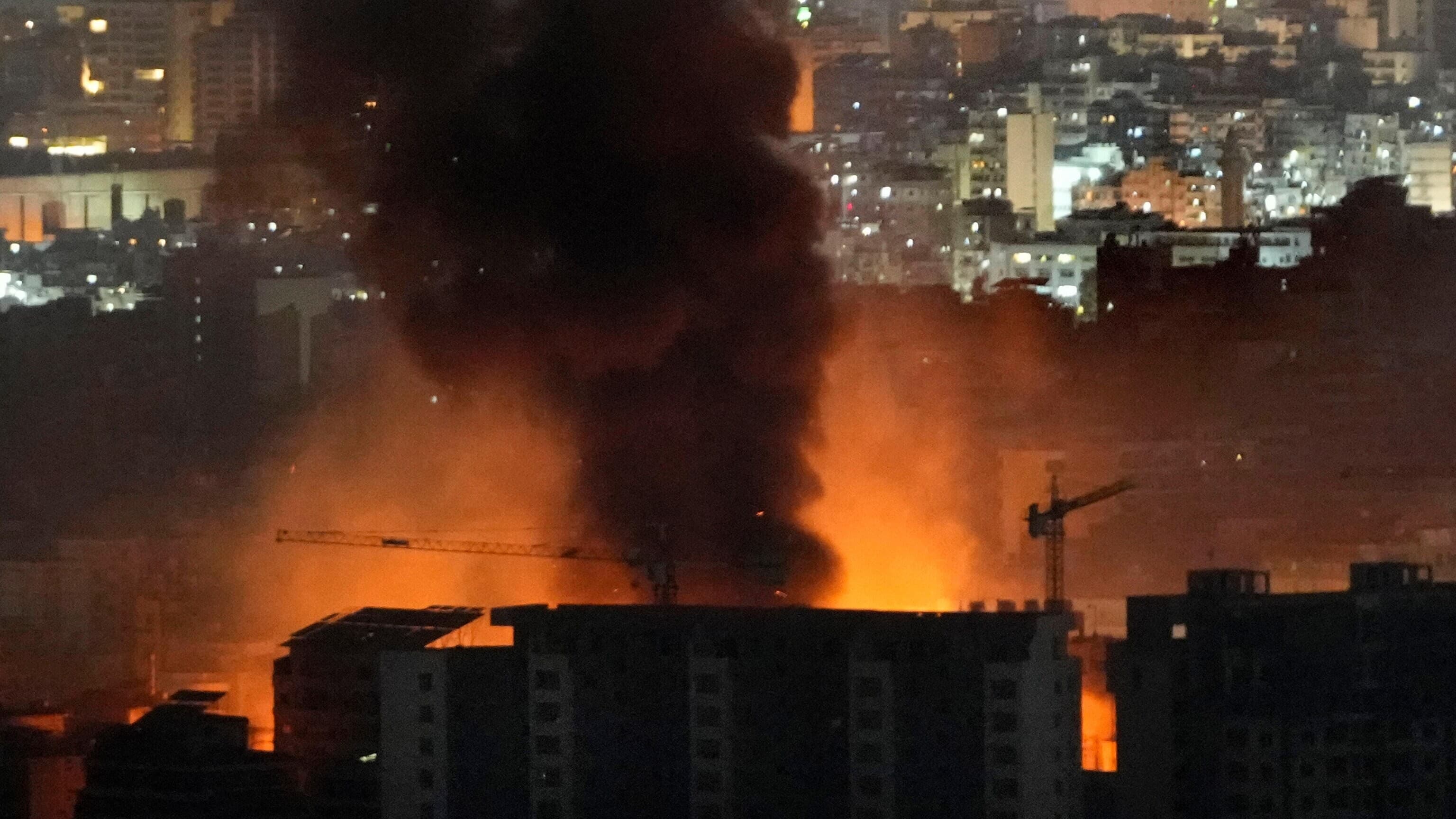
Israel-Gaza war: Israel launches airstrikes on Beirut's Dahiyeh suburb
What's the story
Israel's air force has carried out heavy airstrikes on the southern suburb of Dahiyeh in Beirut, extensively damaging several buildings.
The state-run National News Agency in Lebanon reported the incident.
The escalation comes after weeks of intensified Israeli airstrikes on Baalbek and its neighboring villages, as well as several areas in southern Lebanon.
Conflict escalation
Israel's military actions draw international criticism
Israel's large-scale evacuations and strict aid restrictions have drawn widespread international condemnation.
The Israeli military has also raided hospitals on the pretext of alleged terrorist activity.
In Beit Lahiya, a northern border town and one of last year's initial ground invasion targets, Israeli strikes this week killed at least 88 Palestinians, most of whom were women and children.
Casualty count
Conflict toll and international mediation efforts
Since Hezbollah launched daily rocket attacks on Israel on October 8, 2023, more than 2,800 people have been killed and around 13,000 injured in Lebanon, according to the country's Health Ministry.
The conflict has also expanded to include terrorists from Lebanon to Yemen, bringing Iran closer to a full-scale war with Israel.
Meanwhile, international mediators are ramping up efforts to de-escalate the conflict in Lebanon and the Gaza Strip with new solutions.
Power dynamics
Hamas's losses and Israel's legislation against UN agency
Hamas has faced heavy losses since its October 7 attack on Israel that sparked the Gaza war. The recent assassination of its top leader, Yahya Sinwar, is viewed as a possible turning point.
However, both sides are far from a cease-fire agreement.
On Monday, Israel passed a law that could severely limit the operations of the United Nations Relief and Works Agency for Palestine Refugees in the Near East (UNRWA), Gaza's main aid provider.
Cycle of violence
Israel's offensive and Hamas's retaliation
Israel's latest offensive in northern Gaza started in early October, targeting Jabaliya, a densely populated urban refugee camp where Israel claims Hamas has regrouped.
This cycle of intense Israeli offensives is usually followed by Hamas regrouping and retaliating.
Over 43,000 Palestinians have been killed by Israel's offensive, according to Gaza health authorities, with over half being women and children.
US stance
US position on Hamas's capabilities
Israel claims to have killed over 17,000 fighters without evidence to back the figure.
The United States, however, insists Hamas is no longer capable of launching a repeat of the October 7 attack.
Michael Milshtein, a former Israeli military intelligence officer who now heads a Palestinian studies program at Tel Aviv University, called it an "endless war."
He proposed two options for Israel: reoccupy Gaza or secure cease-fire with Hamas with hostage exchanges and full Israeli withdrawal.